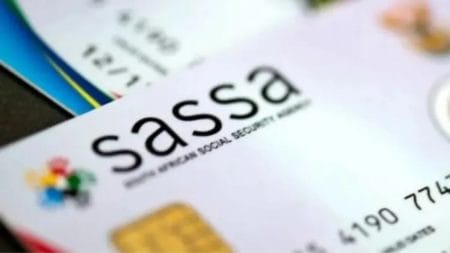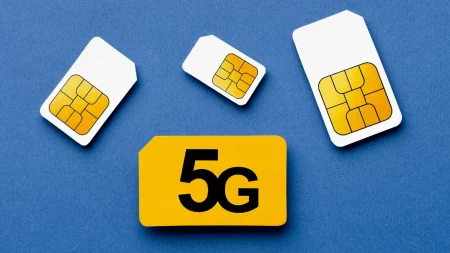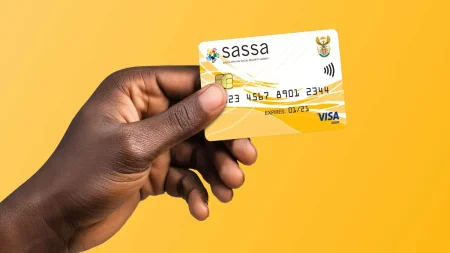The South African Social Security Agency (SASSA) has been providing crucial financial assistance to millions of South Africans through the Social Relief of Distress (SRD) grant. This grant is a lifeline for many individuals, particularly during challenging times like the COVID-19 pandemic. However, there have been instances where beneficiaries experience delays in receiving their SRD payments, leaving them uncertain about what steps to take.
If you’re one of the many South Africans who depend on the SRD grant and find yourself facing delayed payments, don’t worry.
7 things you can do if your SASSA SRD grant payments are delayed:
1. Check Your SASSA SRD Grant Status Online
One of the first things you should do when your SASSA SRD grant payment is delayed is to check your payment status. SASSA has an online portal that allows beneficiaries to check the status of their SRD grant application and payments.
Here’s how to check your SASSA SRD grant status:
- Visit the Status Check portal
- Enter your ID number and the phone number you used for the application.
- Click on the button to check your status.
This process will provide you with updates on the current status of your grant. It’s important to note that delays may occur if your application is still being verified or there is missing information that needs to be addressed.
2. Ensure Your Bank Details Are Correct
Incorrect or outdated banking details are a common reason for delays in receiving SRD grant payments. If you suspect that your bank details may be incorrect or outdated, it’s important to update this information on the SASSA portal.
To update your bank details, follow these steps:
- Visit the SASSA SRD portal and log in using your ID and phone number.
- Scroll to the section for updating bank details.
- Enter the new bank account information and submit it.
Keep in mind that SASSA will not transfer your payment to a bank account that does not belong to you. Always double-check that your bank account number, branch code, and account holder name are correct.
3. Check for SMS Notifications from SASSA
SASSA sends SMS notifications to applicants to inform them about the status of their application or any issues with their payments. If your SRD grant payment is delayed, you might receive an SMS indicating the reason.
Make sure that the phone number you used to apply for the SRD grant is active and that you regularly check your messages. If you receive an SMS from SASSA asking for additional information, respond as quickly as possible to avoid further delays.
4. Visit Your Nearest SASSA Office
If you’ve checked your status online and everything seems correct, but you’re still not receiving your SRD grant payments, it may be helpful to visit your nearest SASSA office. The staff there can provide further clarification on why your payments are delayed and what steps you can take to resolve the issue.
Be sure to bring the following when visiting a SASSA office:
- Your South African ID document.
- Any relevant SMS notifications you’ve received from SASSA.
- A copy of your banking details (if you’ve recently updated them).
Visiting the office in person allows you to speak directly with a SASSA representative, who can guide you through the necessary steps to resolve any issues causing the delay.
5. Call the SASSA Toll-Free Helpline
If visiting a SASSA office isn’t possible or convenient for you, the next best option is to call the SASSA toll-free helpline. This line is dedicated to helping beneficiaries with any concerns or queries regarding their SRD grant payments.
The SASSA toll-free number is: 0800 60 10 11.
When calling, ensure you have your ID number and application reference number on hand so that the agent can quickly locate your application details. The helpline agents are trained to assist you with any issues, including updating personal information, verifying the status of your payments, or explaining any delays.
6. Check the Payment Schedule
SASSA has a payment schedule for SRD grant beneficiaries, which indicates when payments are made each month. It’s possible that your payment has not yet been processed because the date for that payment cycle hasn’t arrived.
You can find the latest payment schedules on SASSA’s official website or social media platforms. Keep track of the schedule to know when you should expect your payment and avoid confusion caused by anticipating it too early.
Read Here: SASSA SRD Grant Payment Dates for September 2024
7. Verify That You Still Meet the Eligibility Criteria
Lastly, delays in SRD payments can happen if your eligibility status has changed. SASSA regularly reviews beneficiaries to ensure they still qualify for the grant. If you no longer meet the eligibility criteria, your payment may be delayed or stopped altogether.
The eligibility criteria for the SRD grant include:
- Being unemployed.
- Not receiving any other form of government financial assistance (such as UIF or NSFAS).
- Being between the ages of 18 and 60 years.
- Not receiving a social grant on behalf of another person.
If you believe that your situation has changed and you no longer meet the eligibility criteria, you can contact SASSA for more information. Alternatively, if you believe that you are still eligible but are experiencing a delay, you can submit an appeal to SASSA, asking them to review your application again.
Related: How to Check Your SASSA SRD R370 Appeal Status
Delays in receiving your SASSA SRD grant payments can be frustrating, especially when you rely on this financial assistance to meet your daily needs. However, by taking the right steps, you can resolve the issue and receive your payments as soon as possible.
To recap, here’s what you can do if your SASSA SRD grant payments are delayed:
- Check your payment status online.
- Ensure your bank details are correct.
- Check for SMS notifications from SASSA.
- Visit your nearest SASSA office.
- Call the SASSA toll-free helpline.
- Check the payment schedule.
- Verify that you still meet the eligibility criteria.
By staying informed and proactive, you can navigate any payment delays and ensure that your financial support is not interrupted.










